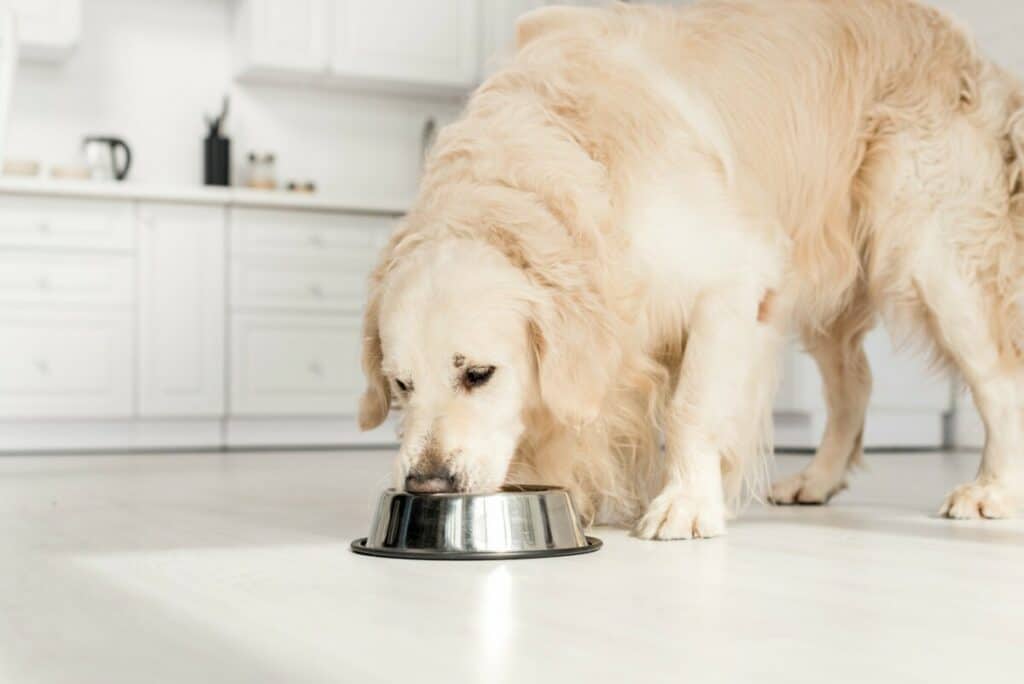
When your canine companion eats a spicy substance, it is easy to become alarmed. What does it mean if my dog eats spicy foods? Can dogs taste the spice and do I need to take any action if they at spicy food?
Dogs cannot taste spicy foods like humans because they lack a protein that allows them to feel the spicy sensation. Because of this, dogs only react to the heat. Spice can cause mouth pain, diarrhea, and vomiting in dogs. Symptoms that last longer than 12-24 hours must be treated by a veterinarian.
To understand more of the complexities of your dog's taste preferences and smell capabilities, continue reading!
Can Dogs Eat Spicy Foods?
Your dog can digest spicy foods, but it is not a good idea to feed them to your pooch.
Spices contain toxins that may not be a cause for alarm in humans, but they do raise a red flag for your dog's health. This means a pepper that is mild to us may be extremely hot and even dangerous for your dog.
Spicy foods can make your dogs excessively thirsty. If a dog drinks too much water, it can lead to vomiting and weight loss.
Eating spicy foods can include short-term stomach issues like gas and diarrhea or long-term conditions such as canine pancreatitis if not treated immediately or properly.
Can Dogs Taste Spices?
Dogs cannot taste and experience the spicy sensation that humans do. This is because dogs have about 1700 taste receptors while humans have approximately 9000. (Source)
However, dogs have an extremely sophisticated sense of smell! Depending on the breed, dogs have about 125 million sensory glands in their noses! Humans only have 5 to 10 million.
Smell is a dog's primary sense. It's how they do social interactions and enjoy their environment. Because of this, if something smells good to your dog, it will taste good too. This is why some dogs love spicy foods – they just smell so good!
This is also why some other dogs are picky eaters. If something does not smell good to your dog, they likely won't eat it. Most dogs are especially sensitive to hot foods such as peppers or hot sauce, which are common ingredients in many spicy foods.
Other times, your dog is just smart! It is speculated that dogs are picky because they are waiting for something a little more delicious than what they are offered.
In the end, dogs are more carried away by the aroma of a meal but cannot taste it as well as we humans do – and a reason why dogs are so food driven by meals like pungent leftovers from your trash can. (Source)
What Spices are Okay for My Dog to Eat?

Spices that are okay for your dog to eat are basil, ginger, turmeric, parsley, and cinnamon.
Basil may even be healthy for your dog, especially for those who struggle with arthritis and moodiness. Contact your vet for further and specific information on this.
What Spices are Not Okay for My Dog to Eat?
Spices that are not okay for your dog to eat are onion, nutmeg, cocoa powder, garlic, and salt. Each of these spices has a high salt content which is bad for your dog's health.
In the wild, a dog's diet is about 80% meat, which is a salty substance. By making salt less palatable, and even unwanted, nature protected dogs from excessive salt intake that can be harmful to a canine's digestion. (Source)
It's not worth it to feed your dog spicy foods. They can't taste the difference and it can cause stomach and digestive issues.
What Should I Do If My Dog Eats Spicy Foods?
If your dog does eat a spicy meal, high chances are that if it is in small amounts or immediate action has been taken, your furry friend is going to be okay.
Spicy foods contain a compound called capsaicin, which is an irritant to dogs. Depending on how sensitive your dog's stomach is, some spicy foods can go down just fine for certain dogs, while others will experience serious pain.
The best thing to do when your dog eats a spicy meal, regardless of how much they actually ate, is to keep an eye on any signs that your dog is in distress or discomfort.
Signs of distress include increased thirst, increased urination, vomiting, diarrhea, excessive drooling, watery eyes, and excessive crying or barking.
If any of these symptoms last more than 12 to 24 hours or are excessive, take your dog to your local veterinarian so they can receive treatment.
How Should I Keep My Dog from Eating Spicy Foods?
If your dog is not the picky type, you will need to take steps to ensure your dog doesn't eat spicy food.
Keep any open or closed boxes of spicy food away from countertops. Keep a closed door to the kitchen pantry. Have a consistent time for breakfast and dinner with aromatic meals your dog enjoys.
If your dog is eating a lot of human food, it can be a sign they are hungry or dissatisfied with their current diet. If your dog is eating spicy food in excess, their sense of smell has a higher tolerance and affinity for it, so it is appealing to them.
Contact your vet if you have specific concerns about any odd or excessive behaviors. Most of the time, if your dog loves spicy foods, it does not indicate an underlying health condition.
Can Spicy Foods Kill My Dog?

Spicy foods themselves cannot kill your dog, but if your dog is not treated correctly and eats spicy foods in large amounts, spicy foods can reduce your dog's lifespan or cause other lifelong problems.
Many spices are toxic to dogs, especially potent spices often found in spicy foods, meaning that they can cause short or long-term harm to your dog. However, spices are not poisonous to dogs, so they won't kill your dog unless they consume an excessive amount of spices. If you keep your dog from eating spicy foods, you won't have to worry about whether or not they will be harmed.

Cindy is a prolific writer and online researcher who can't imagine life without dogs. There is scarcely a dog topic she has not researched or written about. Her love for dogs and helping dog parents is evident by the thousands of dogtemperament.com visitors who read her articles monthly. Most of all, each topic Cindy writes on helps forge a stronger bond and understanding between her and her happy Catahoula Leopard Dog Jossie.